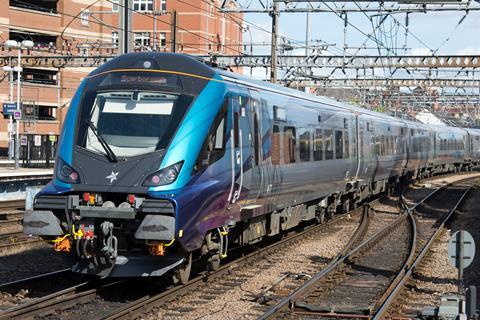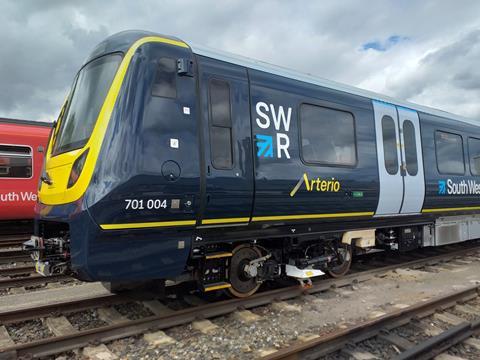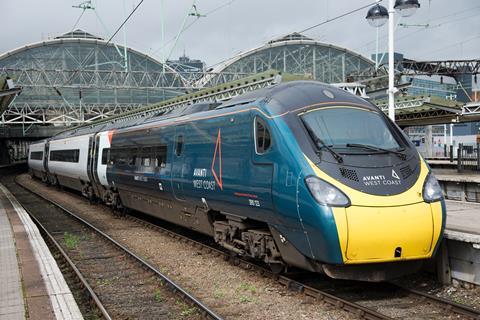
UK: The Department for Transport has finalised the first of the National Rail Contracts under which formerly franchised passenger services are to be operated over the next few years.
The directly-awarded NRCs are envisaged as an interim step between the current Emergency Recovery Measures Agreements and contracts to be awarded by the future Great British Railways.
Having agreed terms for termination of the South Western Railway and TransPennine Express franchises, FirstGroup has now signed NRCs for both operations. These will start from May 31 and run for two years, with an optional two-year extension to be exercised at DfT’s discretion.
FirstGroup says the NRCs ‘achieve a more appropriate balance of risk and reward’, and carry no significant contingent capital risk. DfT will retain all revenue risk and cost risk up to an agreed level as set out in the annual business plan for each business. The operator will bear the risk of any costs in excess of budget unless agreed in advance. Contractual mechanisms would allow the budget to be increased for items outside the operator’s control or changes requested by DfT.
Fees and bonuses
FirstGroup will receive a fixed management fee for each business, together with a performance-related bonus based on Operational Performance, Customer Satisfaction, Finance and Business Management ‘with a mix of quantitative metrics and qualitative assessments with three levels.’

An ‘acceptable’ rating would result in approximately two-thirds of the bonus being paid. The NRCs also make provision for the operator to earn additional incentive payments for participation in ‘significant industry change projects’, such as supplying project delivery expertise for the TransPennine Route Upgrade to be completed by 2028.
For its 70% share in the First MTR joint venture that runs SWR, the group will receive a fee of £3·3m per year, with the opportunity to earn up to £9·9m in performance bonuses. For TPE the management fee is £2·3m and the performance element up to £5·2m.
First Rail Managing Director Steve Montgomery told Rail Business UK that he believed shareholders would be happy with the fees agreed with DfT. ‘We’re satisfied with the sums because obviously the level of risk has been greatly reduced’, he explained. ‘The revenue and cost risk does not sit with the company but we still want to make a great success of these businesses. We believe that we can still bring the innovation and expertise that will get those businesses growing back out of what has been a very difficult time.’
Contingent liabilities
While there are no structural changes to the ring-fenced cash mechanism or the working capital cap-and-collar mechanism, FirstGroup will remain obliged under its contingent capital commitments for the two existing franchise agreements until the expiration of the TPE bonds in December 2021 and SWR in October 2022, as well as the TPE parent company support remaining after payment of the termination sum announced on May 11. The group estimates its total future contingent capital liability at £15m.

The ERMA for the West Coast Partnership operated by FirstGroup and Trenitalia remains in place until the end of March 2022, and FirstGroup is discussing an NRC which could run up to 31 March 2032, although the core and extension periods have yet to be determined. The Emergency Measures Agreement for GWR has already been extended to June 2021, and the underlying GWR direct award runs to April 1 2023 with an optional one year extension.
Under the NRCs SWR and TPE are expected to ‘work collaboratively with industry partners and stakeholders to build back patronage, while delivering plans to upgrade our service offering’, FirstGroup explained. These include the introduction of flexible commuter tickets and the completion of fleet renewals at both SWR and TPE.
‘The National Rail Contracts agreed for SWR and TPE leave us well-placed for lower risk, cash generative rail operations on those two networks’, explained FirstGroup Chief Executive Matthew Gregory. ‘We have long called for this transition to a new contract structure with a far better balance of risk and reward, and which benefits customers by a clearer focus on performance, including the introduction of a new set of passenger service metrics.’



